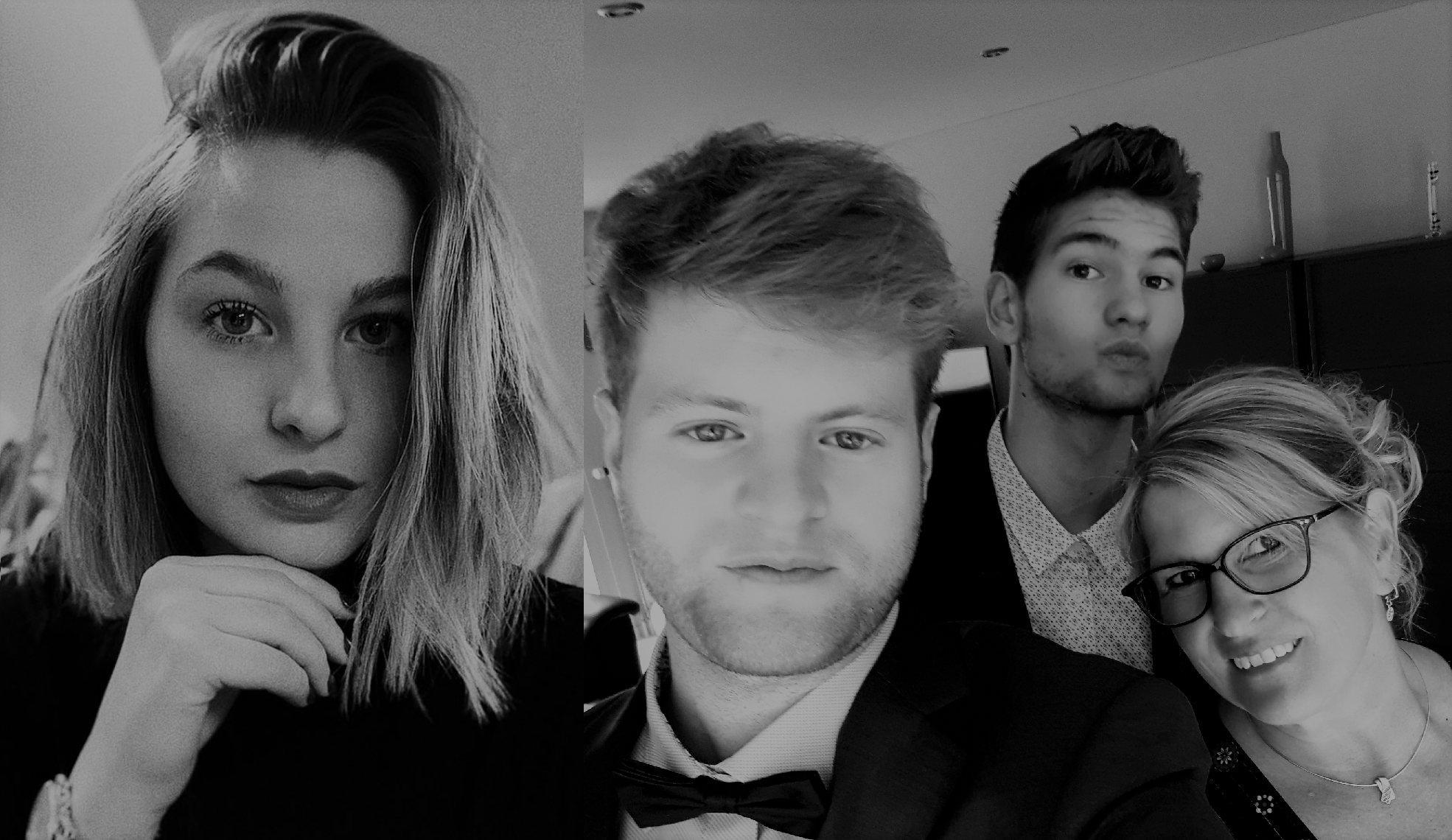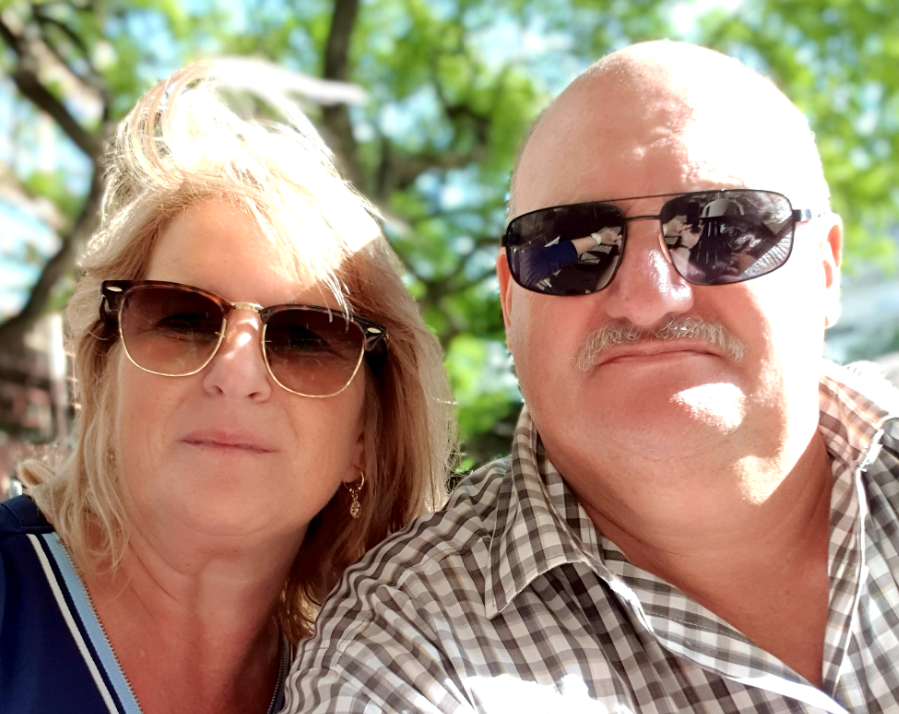During the coronavirus crisis, there are plenty of smart professionals at VUB. But working at VUB is now mainly working for VUB but from home. What’s the reality of the switch from workplace to homeworking? How do we deal with the blurring of boundaries between work and life?
Recognise these situations? We asked our VUB colleagues how they are getting on with the new reality of homeworking. With an eye on best practice, they shared their surprising tips and tricks. Click here to find all their stories.
Fabienne Van Bamis
Fabienne has worked for the IVTD research group for eight years, and organises the annual Intensive Course in Dermato-Cosmetic Sciences led by Professor Vera Rogiers. That’s no easy task in these times where everything is unclear and unpredictable, borders are closed and international travel is limited.
Her homeworking base? Fabienne is currently working from her home in Edingen. She has transformed the veranda, with its view of green space, into her office. Her husband, Patrick (financial director at SEE Telecom), works in the same open living space. Their three children, Kevin (24), Kelly (21) and Liam (16), come in from time to time as a break from studying in their rooms.
Contiue the story below the picture.

Connected by music
They try to accept the new situation and live by the rules to prevent the spread of coronavirus. They aren’t experiencing real fear. But to keep the atmosphere positive and lively, there is always music playing in the house. Sometimes the radio, sometimes Spotify.
Fabienne: “Exchanging music, discovering new favourite tunes, listening to songs together, we’re always doing that in our family. Music connects us and gives us joy and energy for the day.”
Regular movement above all
Fabienne’s family has a long tradition of exercising together. They live in the countryside and have lots of space and options for exercise. Now the children share diverse sports activities each day: cycling, running, keep-fit…
Fabienne: “When the children were young, we looked for a sport that we could do as a family, and we chose badminton.”
Music connects us and gives us joy and energy for the day.
"All three children are good players, but the youngest son, Liam, has distinguished himself. He trains 16 hours a week, on top of 32 hours of classes at CFES sports college in Liège. His aim is to reach international level. Naturally, he’s missing his teammates and the competition. Now that training sessions and overseas travel are impossible, it requires a new approach and focus. Continuing to train calls for a lot of self-discipline and guidance."
Everyone at home once again
It’s great that everyone is once again sleeping under the one roof for a while. Fabienne’s oldest son, Kevin, is working with his classmates on his bachelor thesis in remedial education. He should have been ending this year with an internship, but that has unfortunately been suspended. As a parent, there are the usual doubts and questions about the future. How and when will he get his degree or be able to move to the next academic year?
Fabienne: “Answers to these questions have been postponed. That’s difficult, as is guiding your children through this. But staying calm and optimistic helps.”
What will be will be, however long it takes
Fabienne is a realist and clearly manages to accept situations like this as they arise. How does she do that?
Fabienne: “Maybe I have a patient and stable character. But maybe experiences in my past have made me stronger. In 1994, when I was 25, my mother died of cancer aged 61, just before I got married. In 2006, I lost my father, and nine years ago my only sister died, aged 55. I learned early on to draw on my own strength and on the connection with my family.”
Continue the story below the picture.
Fabienne’s tips
- Support each other, lean on each other
“Listen to each other, talk to each other, share music, laugh, move, be there for each other – that’s what counts.”
- Fill your house with positive sounds
“Music and movement boost our bodies and our spirits and ensure positive energy.”
- Take it slowly
“Do everything calmly and in stages if possible, so you stay fit and fresh. Pay attention to each other and what you’re doing.”
- Find a healthy balance between work and free time
Maybe I have a patient and stable character. But maybe experiences in my past have made me stronger.
Fabienne’s reflections
- “The children are older and more independent, so I find homeworking quite easy. There is no more commute, so I can use that new ‘free time’ more meaningfully.”
- “It’s not an easy situation for anyone. Even so, we all have to stick to the rules. It’s the only way we can gradually get back to a normal life. There will always be a pre- and post-coronavirus life.”
-
JOIN IN the VUB research. The research group TOR at Vrije Universiteit Brussel and the research bureau hbits are investigating the social consequences of the coronavirus crisis. We’re working in a different way, schools and most shops are closed and public life has ground to a halt. What are the consequences of this for your daily life? Take part in the research and tell us how your daily life has changed via www.dagelijksleven.eu
Read also the article of professor Ignace Glorieux: Life in a time with no fixed times.
